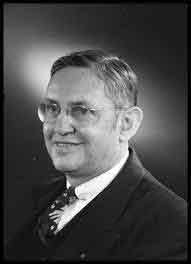The trick is in what one emphasizes.
We either make ourselves miserable, or we make ourselves happy.
The amount of work is the same.
A man of knowledge lives by acting, not by thinking about acting.
Carlos Casteneda (Castaneda)
1925 — 1998
There is little sense in trying to determine the details of the life of this man as they are heavily tainted by bias against his work. The single fact that we can rely on is that part of his training was to disguise and escape his personal history. The important thing in the case of this man is what the works teach. The criticisms all center on peripheral matters of no importance. For the Buddhist these works are an invaluable resource in that the teachings of Don Juan (Carlos' teacher) are largely both consistant with Buddhism and brilliant and Carlos was a supurb reporter of those teachings and what we can see reading them is a take on the actual experience of training in a system completely alien to most people's beliefs and experiences today [Thursday, July 08, 2021 8:57 AM] Don Juan we learn in the later books had actually studied Buddhism in China and perhaps other Asian countries.
The Teachings of don Juan A Yaqui Way of Knowledge
Pages : 288
Pub Date : 1968, 1973
Publisher : Univ. of California Press, Simon & Schuster
A Separate Reality: Further Conversations with don Juan
Journey to Ixtlan: The Lessons of don Juan, 1972
Tales of Power 1974
The Second Ring of Power 1977
The Eagle's Gift 1981
The Fire from Within 1984
The Power of Silence: Further Lessons of don Juan 1987
The Art of Dreaming: 1993
For the Magic of this series to come through it must be read in sequence. Feel free to debate with yourself as to whether or not this series represents the depiction of real events — in the process of doing this, however, I suggest you try and find one internal contradiction. For Buddhists this is an important series because many of the techniques Don Juan uses are the same as those of Buddhists. This should not be too much of a surprise when we learn, towards the end of the series, that Don Juan and many of his associates studied Buddhism in China.
There are two other books in this series, one giving exercises in Magical Passes and one which to my mind is most interesting because it was apparently written before the first book and is clearly the work of an ordinary man ... and yet an extraordinary man even then.
Two other related series also exist. Works by two of Don Juan's female apprentices. Taisha Abelar and Florinda Donner Grau.
Shabono, Florinad Donner-Grau, Delacorte Press, New York, 1982
This is the first of her books. They too should be read in order. This is one of the most astounding books you will ever read. All three together are even moreso. Here Florinda follows the signs and ends up 'going native' among a tribe of Yanomama Indians in the jungle boardering Venezuela and Brazil. This is what it means to be committed, to lend the mind as well as the body to one's path. There is maybe a one-sentence reference in this book to her teacher, one of Don Juan's group. There is no attempt to make a tie-in to Castaneda.
The Witches Dream: Florinda Donner-Grau, 1987, Simon and Schuster, Inc., New York
A real work of art. Here Florinda is instructed in the nature of magical power through the life stories of a half dozen patients of a healer in Venezuela. You need to work at it to see what she is doing, but by the end of the book it has painted an incredable picture. Again, although the entire adventure was instigated by the teacher in Don Juan's group, there is hardly any mention of her and none of Castaneda. Carlos does provide an introduction to the work. Cynics would say at this point that she was trying to boost her book sales by this introduction. That would argue against the idea that she was working with Carlos in his hoax. To be convincing one would want as disinterested a witness as could be found. What we have here is as disinterested a witness as could be found ... only to be 'spoiled' by C.C.'s Introduction.
Being-In-Dreaming, Florinda Donner-Grau, Harper, New York, 1991
Florinda recounts her introduction to the Sorcerers' world. Here we too are introduced to Florinda's teacher and we find out that it is the same group with which Carlos has been involved. She describes her meeting with Carlos and some early encounters.
The Sorcerer's Crossing, Taisha Abelar, Viking Penguin, U.S.A., 1992
That anyone who actually read all of Castaneda's work and also the works of these other two authors who could still believe that this is a work of fiction (a hoax) gives too much credit to the mind of ordinary humans. A lie of this complexity and perfection would be a work of sorcerery in itself.
